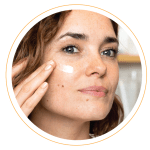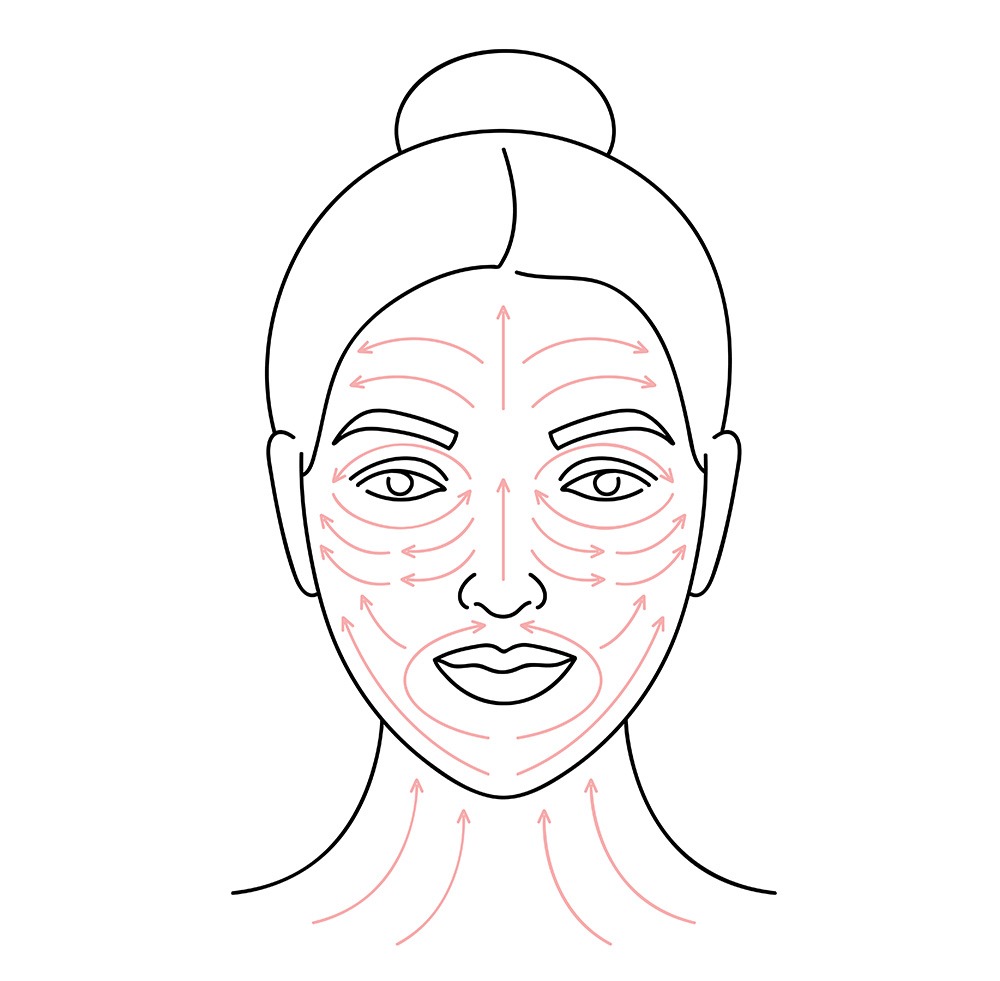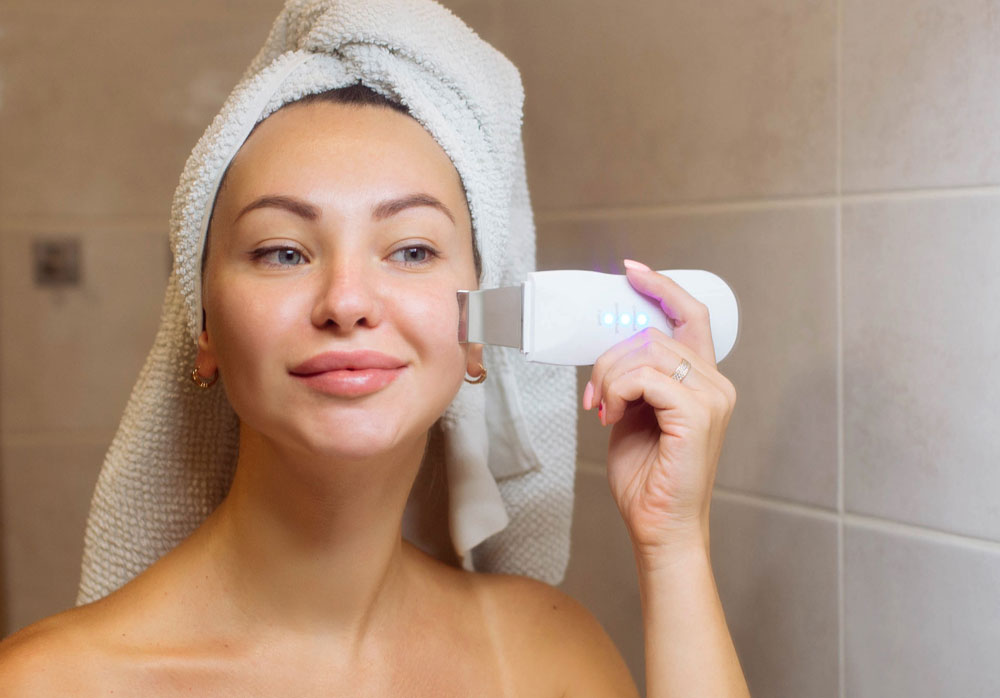Glow Big or Go Home Antioxidant Packed Smoothie
This smoothie not only contains an astounding amount of some of the best whole food sources of antioxidants but tastes like a decadent dessert. (Go on, have it for breakfast, we won’t judge).
My name is Kellie, and I created your optimized skincare routine and plan. I focused on your high and medium-risk priorities based on your DNA test. I also considered your Yudoyu quiz results which told us about your skin type and feelings about your skin. Your personalized routine includes products packed with ingredients that, with consistent use, will improve current skin quality and protect your future face. Please add lifestyle and dietary changes (outlined below) for an added boost toward happier, healthier skin!
Warmly,
Kellie and The Yudoyu Team
We are here to help if you have any questions! Email us at hello@yudoyu.com.

Dry Skin + Occasional Sensitivity + Over 40
DNA ANALYSIS EXPLANATIONS
Our lab tests 16 core and dozens of secondary genetic markers that contribute to skin protection and premature aging and can play a big role in your skin’s future well-being.
The genes tested are cataloged according to their structural, functional, and metabolic effects on the skin.
Each Skin DNA category provides 1 of 3 outcomes: High Risk, Medium or Low Risk.
How does your skin compare with the rest of the population?
Yudoyu’s partner lab SkinDNA® has established one of the world’s largest derma genetics databases with more than 2 million DNA profiles*.
Our data allows us to discover distinctive skin aging traits shared between groups of people.
The enzyme responsible for Collagen Breakdown is heightened. As such, you may break down collagen faster than it is produced and be prone to skin laxity and looseness.
The Antioxidant Glutathione (responsible for Collagen Protection) functions less than ideally. Genetically your skin may not receive optimum support to protect your collagen levels.
Wrinkle Factor: Excess glucose molecules stick to collagen and elastin, binding fibers together. This leads to the formation of wrinkles, thinning skin, and structural skin damage. Your body’s ability to efficiently break down glucose is normal. Great job, genes!

Melanin Production: Your skin likely provides the volume of melanin needed to protect you for short intervals of sunlight exposure. And your skin can likely tan however, more prolonged exposure may still cause sensitivity, freckling & pigmentation with minimal sunburning symptoms.
Photo Defense: Your body is good at breaking down free radicals from UVB rays. The “Burning Rays” are responsible for sunburns and pigment responses.
Repairing UVA Damage: Your result suggests you are not repairing DNA damage caused by UVA exposure (often called the “Aging” Rays).
Breaking down UV Radicals: The gene that protects the overall health and integrity of the skin by fighting UV Radicals is not functioning optimally. Boost your protection with sunblock daily… rain or shine.
Antioxidant Power: Superoxide Dismutase and Glutathione Antioxidants are arguably the body’s most crucial antioxidants. Your gene outcomes show that you have less than the optimal ability to produce these antioxidants. Increasing your antioxidant intake can help protect against free radical damage.
Pollution Defense: UVB radiation, fumes, carbon, and smoke, if not efficiently broken down, can oxidize and cause damage to the skin’s wall. Your genes are great at breaking down these pollutants efficiently!
Inflammation Response: Your genes show that you have a normal inflammation response to everyday irritants.
Detox: Your genes can break down xenobiotic compounds such as cigarette smoke, exhaust fumes, air pollution, and alcohol. Keep in mind these compounds are still harmful for you!
Skin Sensitivity: Your genes have a near-optimal ability to break down toxic chemical compounds in everyday pollution. Likely, you do not suffer inflammation or irritations caused by perfumed products, active skincare ingredients, or city pollution.
Want to start smaller?
Try your cleanser, toner, and moisturizer first, then add more later.
Remember to use a broad-spectrum SPF daily (rain or shine). You’ll find more great choices and add-ons in your “just for YU shop.”
Here is your personalized skincare plan based on your results!
Add these easy-to-do lifestyle habits to your daily routine.
Look for these topical ingredients when shopping for skincare.
Please consult your doctor before you begin a new dietary plan.
These minimally-invasive professional treatments will benefit your skin’s texture and make you glow!
Want to dig deeper? Learn about the causes and symptoms of poor skin health, and view our comprehensive list of beneficial ingredients and treatments.
Selected for you!
 Lymphatic drainage is a facial massage to boost the body’s natural draining system. The face is left visibly more lifted, firm, and youthful by assisting in the movement of excess toxins, water, fats, and proteins down the lymph vessels and into the nodes!
Lymphatic drainage is a facial massage to boost the body’s natural draining system. The face is left visibly more lifted, firm, and youthful by assisting in the movement of excess toxins, water, fats, and proteins down the lymph vessels and into the nodes!
Step 1: Apply treatment oil or cleansing balm of choice. Fingers should not drag but glide easily over the skin with little to no resistance.
Step 2: Follow the directional guide demonstrated in the illustration. Using light pressure, gently massage the face upwards and outwardly. Pressure should be not unlike moving a pen across a table. The key is to lift and relax muscles! If redness occurs, lighten the pressure.
Step 3: Finish with a glass of water, herbal tea, or warm broth for added hydration.
What if I’m doing this wrong?
If you are working in upward and outward motions with light, relaxing amounts of pressure, you are certain to fight against one of the main causes of wrinkles – gravity.

This smoothie not only contains an astounding amount of some of the best whole food sources of antioxidants but tastes like a decadent dessert. (Go on, have it for breakfast, we won’t judge).
Here is one of our favorite shortcuts to having both bone broth and soup, without having to make both separately. Did we also mention how delicious it is?
Roasted bell peppers and tomatoes are two of the top ten foods highest in Vitamin C, making this hummus a super-charged source and convenient snack for any time!
This firming, nourishing, best-thing-since-sliced-bread recipe is not only delicious, but easy to make, and extremely affordable.
† Watch for the symbol: These products and ingredients may contain high amounts of iodine. See the iodine warning below before using.
Thyroid Disease Warnings: If you, or someone in your family, are prone to or suspect you might have thyroid disease, we recommend avoiding the use of all of the following ingredients in both skincare and supplements unless otherwise instructed by your healthcare provider:
These ingredients are enormously high in iodine content, a proven, major thyroid disruptor. When applied topically, they can enter the bloodstream.
Resources: https://www.drchristianson.com/the-iodine-controversy/